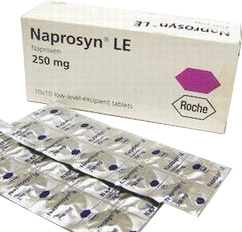Description of Nolvadex
Nolvadex, the brand name for the generic drug tamoxifen citrate, is a non-steroidal agent that demonstrates potent antiestrogenic properties. It is classified as a selective estrogen receptor modulator (SERM) and is predominantly used to treat breast cancer in both pre and post-menopausal women. It comes as a tablet for oral administration, with each tablet containing 10 mg, 20 mg, or 30 mg of tamoxifen citrate which is equivalent to 15.2 mg, 30.4 mg, or 45.6 mg of tamoxifen, respectively.
Pharmacological Action
Tamoxifen competes with estrogen for binding to estrogen receptors in various target tissues. By binding to the receptors, tamoxifen inhibits the binding of estrogen, thus preventing the estrogen-dependent growth of cancer cells. While tamoxifen acts as an antagonist in breast tissue, it can act as an agonist in other tissues like the endometrium or bone, which can lead to different clinical effects.
Indications for Use
Nolvadex is indicated for the treatment of hormone receptor-positive breast cancer in both early and metastatic stages. It is also used for breast cancer prevention in high-risk patients and to reduce the incidence of contralateral breast cancer in patients currently undergoing treatment. Additionally, Nolvadex is approved for the treatment of male breast cancer.
Dosage and Administration
The dosage of Nolvadex may vary depending on the indication. For the adjuvant treatment of breast cancer in women, the recommended daily dose is usually 20 mg, which may be administered as a single dose or divided into two doses. In the setting of metastatic breast cancer treatment, the dosage may range between 20-40 mg per day. Male breast cancer treatment typically requires a dose similar to that of females.
Dosing Instructions
Patients should take Nolvadex tablets at approximately the same time each day, with or without food. The tablets should be swallowed whole with a glass of water and not crushed, chewed, or broken. If a dose is missed, it should be taken as soon as remembered unless it is almost time for the next dose; do not double up doses to make up for missed ones.
Drug Interactions
Nolvadex can interact with a variety of drugs, including blood thinners like warfarin, cytotoxic cancer drugs, and other hormonal therapies like aromatase inhibitors. It may also interact with drugs that inhibit or induce CYP2D6 and CYP3A4 enzymes since these play a role in tamoxifen metabolism.
Adverse Reactions and Side Effects
Common side effects of Nolvadex can include hot flashes, vaginal discharge, and menstrual irregularities. Less common but more serious side effects may include an increased risk of endometrial cancer, thromboembolic events, cataracts, and liver problems. Patients should report any unexpected vaginal bleeding, changes in vision, or signs of stroke immediately.
Special Populations Considerations
While tamoxifen has been studied in various populations, it should be used with caution in individuals with hepatic impairment, as this can affect drug metabolism. Adjustments may also be necessary in individuals with renal impairment. Since the safety of Nolvadex in pregnant women has not been established, it should not be used during pregnancy.
Monitoring Parameters
Patients on Nolvadex should have periodic complete blood counts, liver function tests, and lipid profiles. Those with pre-existing endometrial anomalies should undergo regular gynecological monitoring. Monitoring bone density may be considered in premenopausal women due to the potential effects of tamoxifen on bone mineral density.
Storage and Handling
Nolvadex tablets should be stored at room temperature, between 20°C to 25°C (68°F to 77°F), in a dry place away from light and moisture. The medication should be kept out of reach of children and pets. Patients should be advised to handle the medication with clean, dry hands and to repack any loose tablets in a pouch or blister for protection.
Disposal of Unused Medication
Unused or expired Nolvadex tablets should be disposed of in accordance with local pharmaceutical disposal regulations to avoid environmental contamination or accidental ingestion by humans or animals. Medication should not be flushed down the toilet or disposed of in household trash without proper guidance.

Reviews
There are no reviews yet.